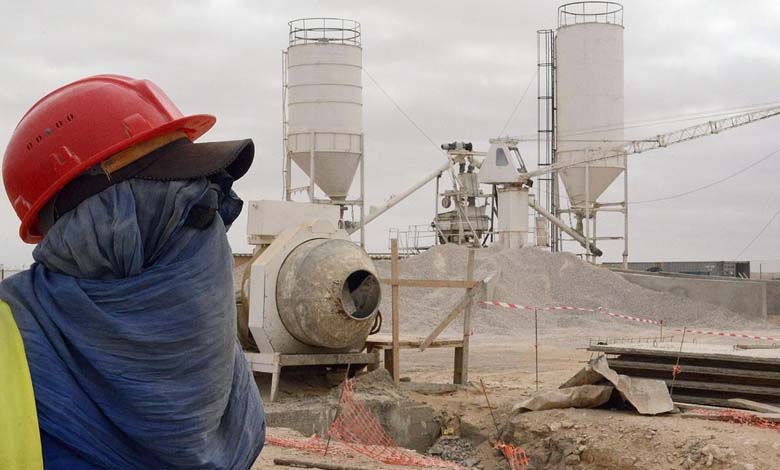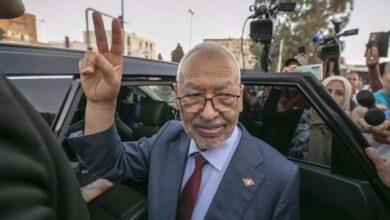Morocco is a candidate for transition to peaceful nuclear energy for electricity generation

The Kingdom is among 12 countries expected to become nuclear and will commence electricity production using nuclear energy sources in the coming few years. Morocco is steadily moving towards the list of peaceful nuclear nations after substantial investments in solar and wind energy, as well as green hydrogen production, to meet its clean energy needs away from polluting fossil sources, in line with its commitment to reduce environmental pollution.
Atomic energy resolves disputes with Iran in hopes of returning to the nuclear agreement
Rafael Mariano Grossi, Director-General of the International Atomic Energy Agency, announced that Morocco is one of the 12 countries expected to become “nuclear” and will begin electricity production using nuclear energy sources in the coming years.
International reports confirm that Morocco has expressed serious and responsible intentions to engage in intensive cooperation to strengthen its nuclear capabilities, both in terms of security and technology. There are also expectations that Morocco might practically move towards building a Moroccan nuclear reactor after 2030.
Grossi stated at the World Nuclear Exhibition in Paris that it is necessary to double the number of nuclear reactors globally, currently around 400 reactors, to facilitate the implementation of the Paris Climate Agreement recommendations. He added, “At present, about 10 countries have practically entered the decision-making phase to build nuclear power plants, and 17 other countries are in the evaluation phase”; however, “there will be about 12 or 13 new nuclear countries in a few years.”
Morocco possesses vast reserves of phosphates from which uranium is extracted, ranking first globally in terms of reserves of this natural resource, owning 70% of the world’s phosphates. This is a significant factor encouraging Morocco to pursue nuclear energy.
Since 2014, Rabat has been preparing the legal framework for nuclear energy use, gathering experience and assessing its capabilities to achieve this ambition. Morocco announced the formation of the first national agency for “Security and Safety in Nuclear and Radiation Fields,” responsible for establishing a radiation risk monitoring network across the country and implementing the provisions of Law 142-12, which deals with nuclear and radiation safety in Morocco.
In 2016, the International Atomic Energy Agency granted approval to Morocco to launch its peaceful nuclear program, stating that the Kingdom met the technical, administrative, legal, security, and managerial conditions and possessed the human qualifications, experience, and scientific competence to launch nuclear energy programs for peaceful purposes, especially in the fields of electricity production and water desalination.
In September 2021, the Moroccan government and its Hungarian counterpart signed a memorandum of understanding for “cooperation in the field of training and education in the nuclear industry for peaceful uses of nuclear energy,” aiming to develop programs for collaboration in training and education, particularly in the areas of basic and applied research, nuclear science and technology, and the legal framework for peaceful uses of nuclear energy.
The “Moroccan National Center for Nuclear Energy, Science, and Technology” became the first nuclear institution in Africa to operate a center in collaboration with the International Atomic Energy Agency.
In a speech to the House of Representatives in June last year, Moroccan Minister of Energy Laila Benali stated that the ministry had conducted an assessment of nuclear energy use for electricity production, which began in 2015, and prepared a report this year to implement the evaluation’s recommendations.
The minister concluded that, after the significant investment Morocco made in renewable energies, it was time to turn to nuclear energy, which accumulated important knowledge and experience. This move is part of Morocco’s preparations to make an informed national decision regarding electricity production using nuclear energy.
In October 2022, Morocco signed an agreement with Russia for cooperation in the use of nuclear energy. The agreement, signed by the Russian state-owned company Rosatom specializing in nuclear and alternative energy, aims to “assist Russia in establishing and improving nuclear energy infrastructure, designing and building nuclear reactors.” Russia will also provide assistance to Morocco in exploring and developing uranium deposits, studying the mineral resource base in the country, and training staff working in nuclear power stations.
This agreement with Rosatom does not involve the construction of a nuclear power station but rather an experimental nuclear reactor “similar to the one previously existing in Morocco in Maamoura Forest.” Moroccan experts say that Morocco will never give up the option of transitioning to nuclear energy.
The former Director-General of the Moroccan Agency for Nuclear and Radiation Safety, El Khmar Marabet, explained that Morocco can diversify its energy sources by adopting an energy mix that integrates nuclear energy, which has become a primary source of energy. He emphasized that the challenge would be significant in the next 30 to 40 years since 80% of the world’s electricity must be low-carbon, compared to the current 32%, to ensure greater efficiency in combating climate change.
Morocco’s interest in the nuclear option extends not only to renewable energies but also to seawater desalination projects. In July of last year, the Russian company Rosatom, specializing in nuclear energy and alternative energies, signed an agreement with a Moroccan company to implement seawater desalination projects, following the same trend associated with adopting nuclear energy for peaceful purposes, contributing to Morocco’s plan to provide 1.3 billion cubic meters of water annually.
Morocco is committed to the peaceful use of nuclear energy. The Permanent Ambassador of Morocco to the United Nations, Omar Hilale, warned of the risks arising from gaps in nuclear law regulation, especially amid the complex challenges of a world marked by wars, regional crises, climate change, and delays in implementing the 2030 development agenda.
At the invitation of the International Atomic Energy Agency, as the chair of the Disarmament and International Security Committee (First Committee) of the current 76th session of the United Nations General Assembly, Hilale presented his views on “Non-Proliferation and Peaceful Uses of Nuclear Energy” within the framework of the round table.
The Moroccan diplomat affirmed that non-compliance with the effective nuclear law decisions would lead to the failure of the current legal arsenal, and it is likely to fuel illegitimate aspirations by increasing the risks of unlawful use of nuclear energy, creating new nuclear weapons hotspots and potential regional or even international crises.
He highlighted the launch of several international initiatives in the field of nuclear security, such as the Non-Proliferation Security Initiative, Nuclear Security Summits, and the Global Initiative to Combat Nuclear Terrorism, launched in Morocco in 2006.
He pointed out that Morocco, as a founding partner of the Comprehensive Initiative to Combat Nuclear Terrorism, has actively contributed to this initiative, including by endorsing the Declaration of Principles and working as a coordinator for the Implementation and Evaluation Group for the response and mitigation group for the period 2019-2021.












